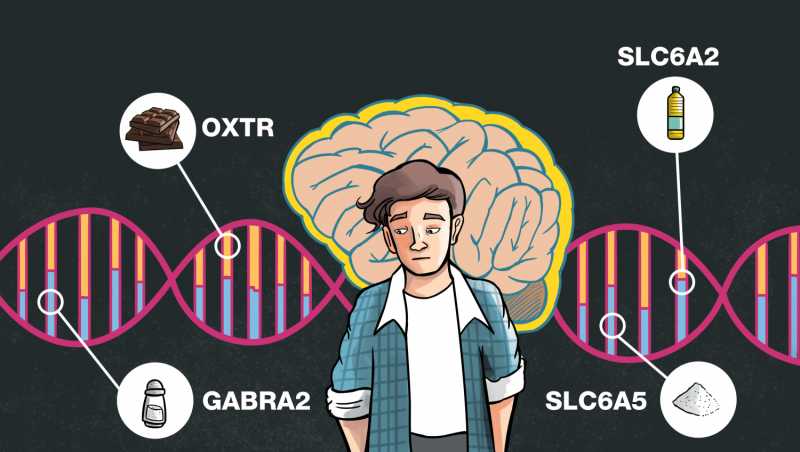Could genetics influence what we like to eat?

Have you ever wondered why you keep eating certain foods, even if you know they are not good for you? Gene variants that affect the way our brain works may be the reason, according to a new study. The new research could lead to new strategies to empower people to enjoy and stick to their optimal diets.
Silvia Berciano, a predoctoral fellow at the Universidad Autonoma de Madrid, will present the new findings at the American Society for Nutrition Scientific Sessions and annual meeting during the Experimental Biology 2017 meeting, to be held April 22-26 in Chicago.
"Most people have a hard time modifying their dietary habits, even if they know it is in their best interest," said Berciano. "This is because our food preferences and ability to work toward goals or follow plans affect what we eat and our ability to stick with diet changes. Ours is the first study describing how brain genes affect food intake and dietary preferences in a group of healthy people."
Although previous research has identified genes involved with behaviors seen in eating disorders such as anorexia or bulimia, little is known about how natural variation in these genes could affect eating behaviors in healthy people. Gene variation is a result of subtle DNA differences among individuals that make each person unique.
For the new study, the researchers analyzed the genetics of 818 men and women of European ancestry and gathered information about their diet using a questionnaire. The researchers found that the genes they studied did play a significant role in a person's food choices and dietary habits. For example, higher chocolate intake and a larger waist size was associated with certain forms of the oxytocin receptor gene, and an obesity-associated gene played a role in vegetable and fiber intake. They also observed that certain genes were involved in salt and fat intake.
The new findings could be used to inform precision-medicine approaches that help minimize a person's risk for common diseases—such as diabetes, cardiovascular disease and cancer—by tailoring diet-based prevention and therapy to the specific needs of an individual.
"The knowledge gained through our study will pave the way to better understanding of eating behavior and facilitate the design of personalized dietary advice that will be more amenable to the individual, resulting in better compliance and more successful outcomes," said Berciano.
The researchers plan to perform similar investigations in other groups of people with different characteristics and ethnicities to better understand the applicability and potential impact of these findings. They also want to investigate whether the identified genetic variants associated with food intake are linked to increased risks for disease or health problems.
More information: Behavior related genes, dietary preferences and anthropometric traits , app.core-apps.com/eb2017/abstr … e96fd9b3196099bd6f5b















